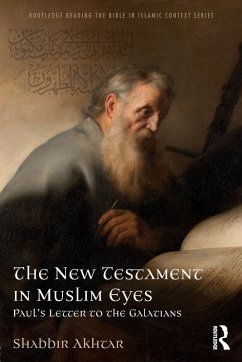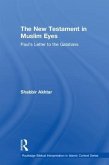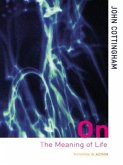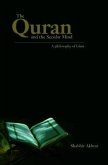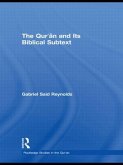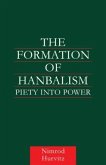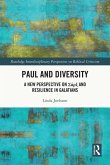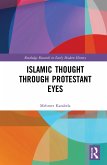This book provides commentary and analysis, from a Muslim perspective, on the writing of St. Paul. In particular it provides a close textual reading of Galatians, and discusses wider Christian theology and the New Testament whilst simultaneously opening a dialogue with the Qurâ an, and Islamic thinking and practice.
Hinweis: Dieser Artikel kann nur an eine deutsche Lieferadresse ausgeliefert werden.
Hinweis: Dieser Artikel kann nur an eine deutsche Lieferadresse ausgeliefert werden.
While thoroughly aware of conventional New Testament scholarship, this author brings a challenging and intensely interesting Muslim perspective to the Apostle Paul's claim that Christ brings freedom from religious law. Skilfully drawing out themes that unite and divide members of three monotheistic religions, this commentary is remarkable, provocative, and essential reading.
Paul S. Fiddes, Professor of Systematic Theology, University of Oxford
This is an extremely interesting, and very important, book. Paul's Letter to the Galatians, with its insistence that the Galatian followers of Jesus do not need to be circumcised, is an absolutely central text for understanding the evolution of Christianity as a tradition of faith distinct from its Jewish ancestor, and this is, to the best of my knowledge, the first time that a Muslim writer has wrestled with it in as much detail as Dr. Akhtar has; he is very much to be congratulated for doing so with such thoroughness, and the Oxford Centre for Muslim-Christian Studies is also to be commended for providing the environment within which he has been enabled to do so.
Hugh Goddard, University of Edinburgh Reviewed for The Centre for Muslim-Christian Studies, Oxford
Paul S. Fiddes, Professor of Systematic Theology, University of Oxford
This is an extremely interesting, and very important, book. Paul's Letter to the Galatians, with its insistence that the Galatian followers of Jesus do not need to be circumcised, is an absolutely central text for understanding the evolution of Christianity as a tradition of faith distinct from its Jewish ancestor, and this is, to the best of my knowledge, the first time that a Muslim writer has wrestled with it in as much detail as Dr. Akhtar has; he is very much to be congratulated for doing so with such thoroughness, and the Oxford Centre for Muslim-Christian Studies is also to be commended for providing the environment within which he has been enabled to do so.
Hugh Goddard, University of Edinburgh Reviewed for The Centre for Muslim-Christian Studies, Oxford

